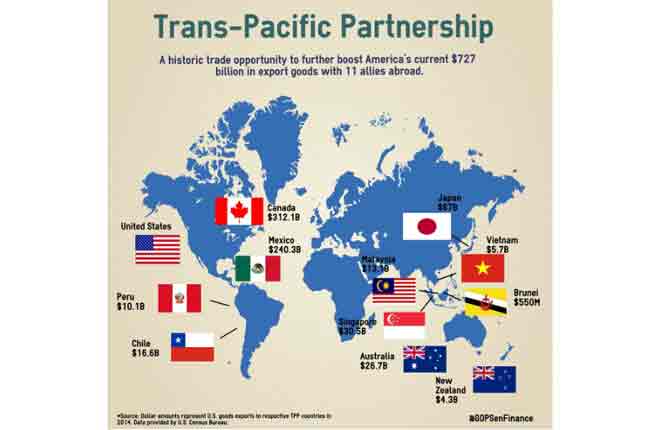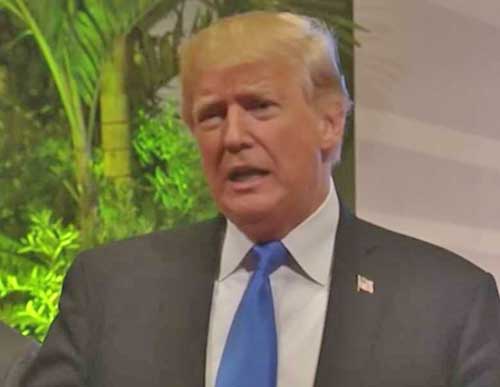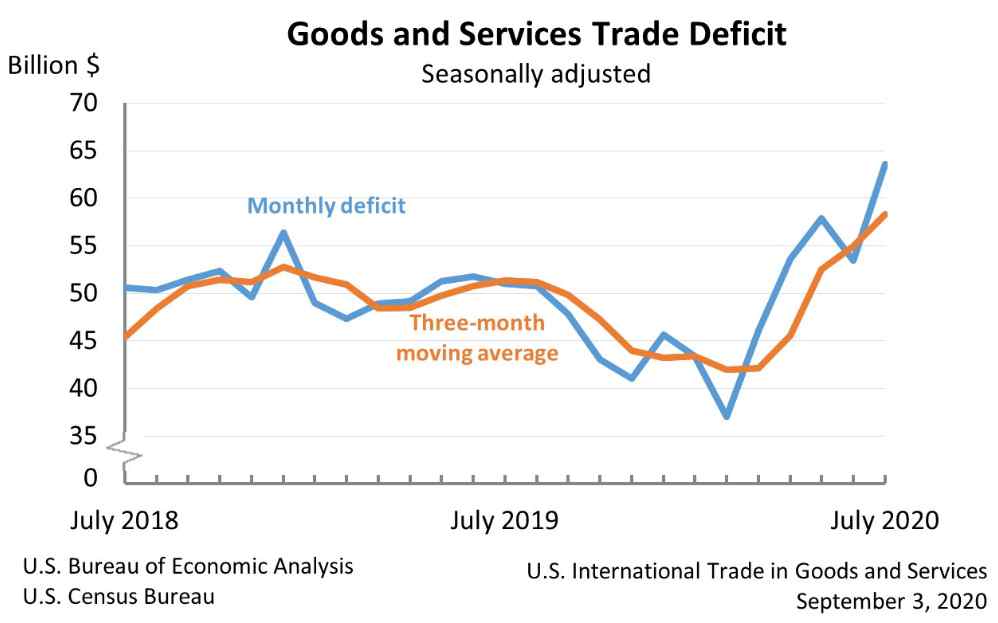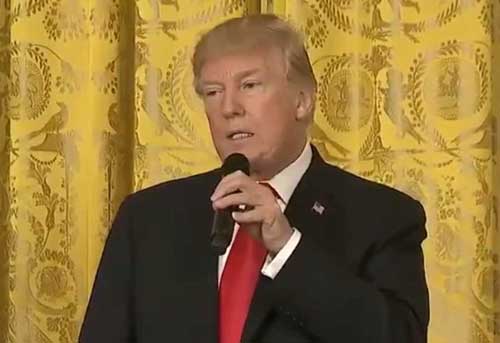BEIJING — Fresh off his first visit to Asia, included a two-day stop in China that some argue was heavy on flattery and lacking in substance, analysts say President Donald Trump is now poised to do what he’s long promised: get tough on Beijing over its unfair trade practices.
While in China, Trump said he gives Beijing “great credit” for taking advantage of the United States, which left some perplexed.
Speaking at signing ceremony for deals that totaled some $250 billion he said: “I don’t blame China … who can blame a country for being able to take advantage of another country for the sake of its citizens?”
But that was only the first half of a key message of his trip.
The rest came in his speech at the Asia Pacific Economic Cooperation and was echoed again at the White House on Wednesday.
“We can no longer tolerate unfair trading practices that steal American jobs, wealth and intellectual property. The days of the United States being taken advantage of are over,” Trump said.
Sweet and sour
Douglas Paal, vice president for studies at the Carnegie Endowment for International Peace, said he sees a domestic political strategy in the broader message that Trump conveyed during his trip.
By saying that China is not to blame and that it is doing what any country should do to protect its interests, Trump has given himself license to do for America what other leaders have not done.
Paal notes that early next month two key trade investigation reports are due and, unless something knocks them off course, they are going to lead to high tariffs on some products and maybe even outright bans.
And the Chinese will retaliate as they feel appropriate, he said.
“So we will go from the good feeling, high emotions of this state visit, which we’d call the sweet, to sour in December on trade. And that would be more suitable to the way Trump thinks about his political constituency and the debt he owes that constituency for his election,” Paal said.
Paal added the outcome of such an approach and impact on America is widely uncertain, but what is clear is that Trump will stick to his domestic political calculation until it proves to be wrong.
Trade investigations
In addition to a section 301 investigation into China’s use of policies to force foreign companies to hand over intellectual property in exchange for market access, the Trump administration has also launched a section 232 investigation to determine whether cheap Chinese aluminum and steel imports threaten national security.
Both would allow the administration to levy tariffs on Chinese goods. Section 301 of the Trade Act of 1974 was a popular trade tool that was used in the 1980s against Japan, and it allows the president to impose tariffs or other restrictions to counter unfair trade practices.
China has called the launch of the investigation “irresponsible” because it is based on a domestic U.S. law that could be applied outside of the framework of the World Trade Organization.
Some have warned that the use of such measures could trigger a trade war between the two countries. Others, however, argue that the trade war began a long time ago and that the difference is that previous administrations did not do enough about it.
“I think there are very few people who would say that the previous administrations, whether it was the Obama administration or the Bush administration, were overly aggressive in enforcing trade law. Many people would say that they were insufficiently aggressive in enforcing U.S. law when it comes to unfair trade practices of U.S. trading partners,” said Ross Feingold, senior adviser with the American political risk manager DC International Advisory.
Economic bullets
In addition to the investigations, there is a bipartisan push by lawmakers in both the Senate and House of Representatives to bolster the Committee on Foreign Investment in the United States, or CFIUS.
If the draft legislation is approved, it would not only broaden the scope of the interagency body’s review of foreign investments in the United States, but expand it to include joint venture investments overseas as well.[xyz-ihs snippet=”adsense-body-ad”]CFIUS evaluates investments in the United States for potential threats to national security. Some lawmakers have proposed expanding the review domestically and to include investments overseas as well. A proposal that is likely to not sit well with big American multinational corporations.
Ethan Cramer-Flood, associate director of The Conference Board’s China Center and Asia Programs, said that over the past year there has been an enormous amount of tactical preparation and economic bullets for eventual economic confrontation.
And while that is no guarantee that will happen, the trade investigations and proposed CFIUS legislation are all part of that effort.
“The Trump trade team and their allies in Congress are loading up the chamber,” Cramer-Flood said. “That doesn’t mean they are going to fire the bullets, but they are creating a sort of legal arsenal, so that rather than just rhetoric and yelling, there are things the U.S. side can do to cause real pain on the Chinese side.”
What the Trump administration is aiming to do, Cramer-Flood said, is accumulate leverage and create a legitimate concern from the Chinese perspective, in hopes of bringing about change.
Without that kind of pressure, China is unlikely to have any interest in changing the status quo, which has been working very well for it for the past 30 years, he added.
Joyce Huang contributed to this report.







